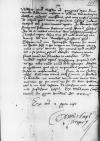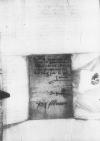List #1233
Cornelis DE SCHEPPER do Ioannes DANTISCUSMadrid, 1534-11-05
| odebrano [1535]-02-16 Rękopiśmienne podstawy źródłowe:
Pomocnicze podstawy źródłowe:
Publikacje:
| ||||||||||||||||
Tekst + aparat krytyczny + komentarz Zwykły tekst Tekst + komentarz Tekst + aparat krytyczny
Reverendissimo in Christo Patri et Domino, domino
In
...
cf.
Cum ad me scribere voles, litteras mitte
Ex
Ex animo is, quem nosti,
[1 ] From 1528 to 1545
[2 ] Two of the three Grudii fratres were staying with the court of

